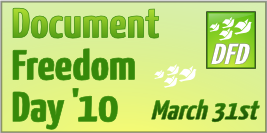A Conversation with Colin Charles, Chief Evangelist at Monty Program Ab

A lot has happened in the MySQL world since last year’s conference in Silicon Valley. Oracle’s acquisition of MySQL through its purchase of Sun has led to increased diversity and opportunities for the entire MySQL ecosystem. The conference this week in Santa Clara brings it all together and showcases the latest happenings. I chatted with Colin Charles, program chair for the conference, about his expectations for the event.
What do you hope the MySQL Conference will accomplish this year?
I hope that we’ll see us going beyond MySQL being a company, or a trademark. I believe that if people understand that this is one large ecosystem, where we have some outright forks (like Drizzle), and some branches (like MariaDB, etc.), we’re all helping make the MySQL ecosystem a more vibrant and better one. Like features being funded, etc. It’s completely amazing!
What great new things is MySQL planning for this year?
I can’t quite say this considering I have no idea what Oracle’s plans are. But I can expect things like MySQL 5.5, a lot of talk with the storage engine vendors, new happenings with InnoDB. This year, I expect a lot of things within Oracle to be “settling down”, so to speak.
From a MariaDB perspective, we’re taking in more community patches (an example is virtual columns that have been sitting around on the MySQL patch queue for quite some time – so we’re picking up the slack). We’ll also focus on engines. We want new optimizer features, which we’ve been spending a lot of time on.
Drizzle? I think a release is imminent. There are more and more users in various pockets now as well. And the team is quite distributed, with Rackspace being one of the major hirers of Drizzle hackers.
What is the role of MySQL in relationship to other Oracle products such as Oracle Database 11G and BerkeleyDB.
There is really no relationship. These are all independent products. How will this be sorted in Oracle land when it comes to selling Cluster NDB against Oracle RAC/Times Ten? Or MySQL against Oracle? I think Oracle will allow internal competition. Competing against yourself is a lot better than competing against others.
BDB was a MySQL engine. It now has an SQLite front-end.
How has the MySQL landscape changed with offerings like MariaDB, Drizzle, XtraDB and others?
Drastically. Now people have a choice. Drizzle is a complete fork of the 6.0 tree. MariaDB is based on the current release HEAD of MySQL, which is 5.1. XtraDB is an engine that’s included in MariaDB. In fact, MariaDB includes engines like PBXT, XtraDB, FederatedX (modified Federated engine that MySQL no longer maintains), and will soon include the Spider and Sphinx engines.
What do you think of NoSQL? Is it complementary to MySQL?
NoSQL is for very smart people with very specific uses. I think you’d have to understand how an RDBMS like MySQL works, and figure out that, for your specific use, it doesn’t do the trick. Then you might use one of the new utilities, all lumped as “NoSQL” databases.
It will be a growing player, and we’ve focused on this at the conference this year. Maybe next year, we’ll have a whole track or two, as steam is picking up amongst all these solutions, and a lot of shops run MySQL and some NoSQL solutions at some stage… especially the big shops!




